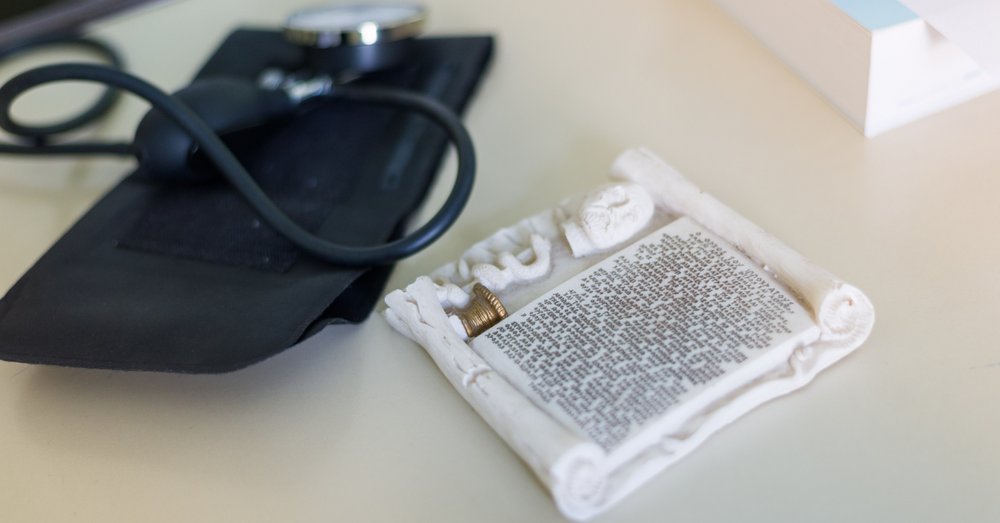The history of the Declaration of Geneva

The Declaration of Geneva is a statement of ethical principles for medical doctors, adopted by the World Medical Association (WMA) in 1948. It is based on the Hippocratic Oath, which has guided medical ethics for thousands of years.
The Declaration of Geneva serves as an important reminder of the obligations and responsibilities of medical doctors. By adopting the Declaration of Geneva, medical doctors affirm their commitment to these principles and demonstrate their dedication to the highest standards of ethical practice in the delivery of healthcare.
Until 2017, the Declaration of Geneva stated that the physician's foremost duty is to the patient and that the health of the patient must be the doctor's first consideration (with no consideration for the doctor's own health and wellbeing), but in 2017 the World Medical Association voted unanimously to include: I WILL ATTEND TO my own health, well-being, and abilities in order to provide care of the highest standard.
Medrecruit founder, Dr Sam Hazledine, played a part in that amendment. In this article we will cover the history of the Declaration of Geneva and the role he played.
The Declaration of Geneva has only been amended four times since it was adopted by the General Assembly of the World Medical Association in Geneva in 1948. It was amended in 1968, 1983, and 1994, editorially revised in 2005 and 2006 and amended in 2017.
Importance of the Declaration of Geneva
The Declaration of Geneva is an important ethical code for medical doctors, as it serves as a reminder of the fundamental principles of medical ethics.
By subscribing to the Declaration, medical doctors affirm their commitment to prioritise the wellbeing of their patients, attend to their own well being and also maintain confidentiality in the course of their work.
The Declaration sets a high standard for medical practice and helps to establish trust between patients and doctors. In times of conflict, natural disasters, and public health emergencies, the Declaration serves as a reminder of the critical role that medical professionals play in promoting the health and welfare of all people, regardless of their circumstances.
The Declaration of Geneva remains relevant today, as it helps to uphold the integrity and professionalism of the medical profession, and ensures that patients receive the best possible care.
History of the Declaration of Geneva
The Declaration of Geneva was adopted by the World Medical Association (WMA) in 1948, in response to the atrocities committed during World War II. The declaration was created to affirm the principles of medical ethics and to serve as a reminder of the obligations and responsibilities of medical doctors.
Looking for a doctor job that matches your career and lifestyle aspirations?
Search jobsThe Declaration was based on the Hippocratic Oath, which has been the foundation of medical ethics for thousands of years. The Declaration was updated in 1984 to reflect changing circumstances and the changing nature of medical practice.
Today, it remains an important code of ethics for medical doctors and is widely recognised as one of the cornerstone documents of modern medical ethics. The Declaration is supported by medical organisations around the world and is an essential part of medical training and professional development.
Changing the Declaration of Geneva
In 2017, Medrecruit founder Dr Sam Hazledine successfully lobbied the World Medical Association to amend the Declaration of Geneva (the modern-day Hippocratic Oath) to include: "I will attend to my own health, well-being, and abilities in order to provide care of the highest standard."
Sam gathered a petition of 4,500 doctor signatures which he took to the Association working group – set up to review the Declaration – the groups decision to make the amendment was unanimous.
His change was then passed unanimously by the World Medical Association in Chicago, 2017.
"It was a pivotal moment in the evolution of our profession; doctors standing shoulder to shoulder to make us better together. It felt pretty surreal for the team and me, who had worked for years to add this amendment to the WMA Declaration of Geneva, the modern-day Hippocratic Oath," said Dr Sam Hazledine.
Sam's interest in doctor wellbeing began soon after he graduated medical school and noticed huge numbers of his classmates disillusioned and leaving the profession - over time he started to see the scale of the doctor wellbeing crisis and he decided to make it his life’s work.
Since then Sam has continued to advocate for, educate, and work towards better health and well-being for all doctors.
He set up Medrecruit with the mission of helping doctors find better placements and live better lives, but he felt that it wasn't enough, so he set up Medworld to lobby the World Medical Association to amend the Declaration of Geneva, and since then his research has focussed on how to make significant inroads to address the problem.
He is bringing his work to life through Medworld; digital solutions designed to improve the future of medical staffing.
In conclusion, the Declaration of Geneva, a pivotal oath for members of the medical profession, embodies noble traditions and ethical principles that prioritise human life. Adopted in 1948, it serves as a modernised Hippocratic Oath, wherein each practitioner promises solemnly and freely to uphold their duty as a healer. This commitment ensures that they will not permit considerations of any kind to intervene between their duty to their patients. By instilling these values in their colleagues and students, medical professionals create a strong foundation for maintaining the integrity and altruism that characterise this revered profession.
